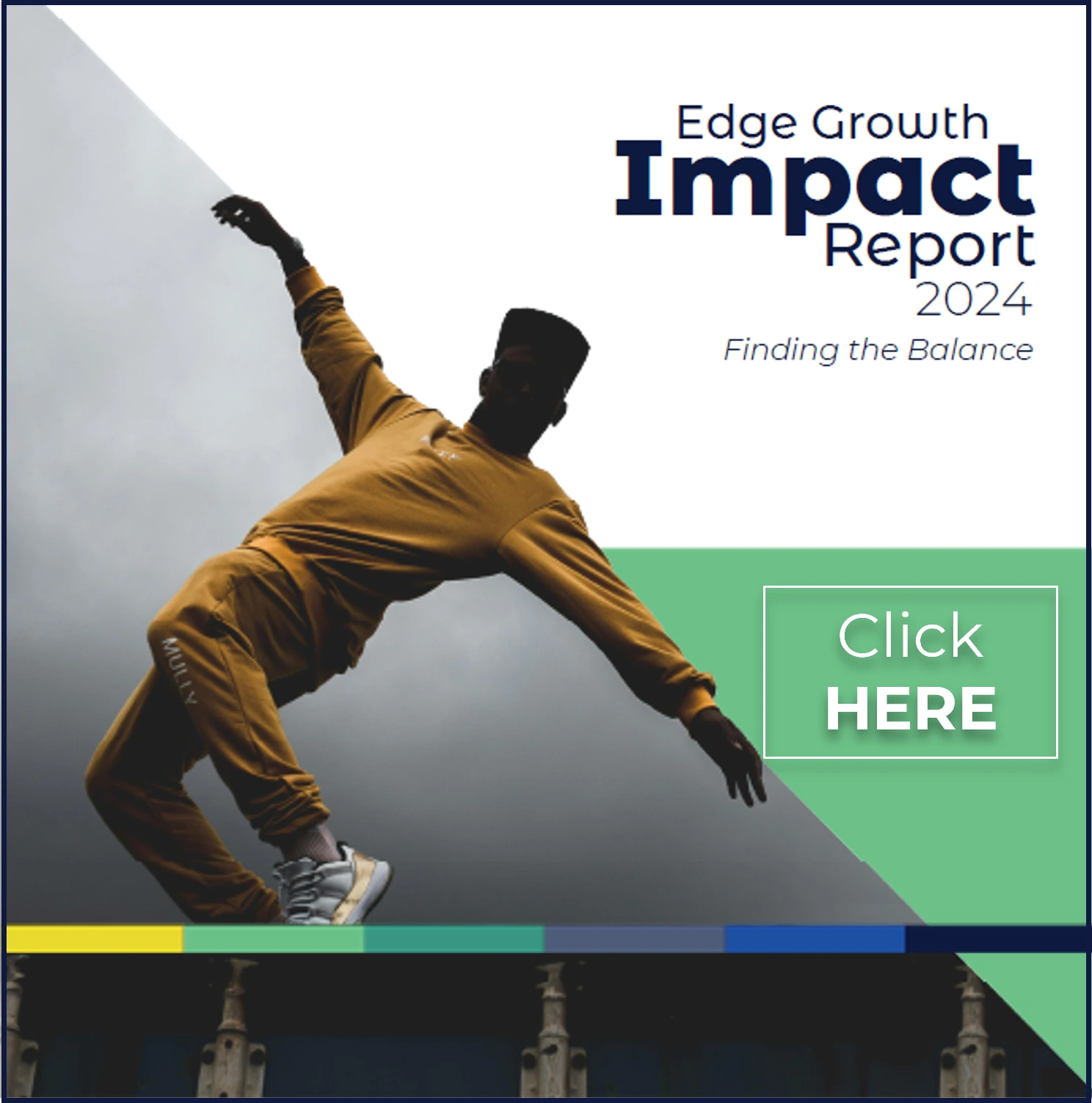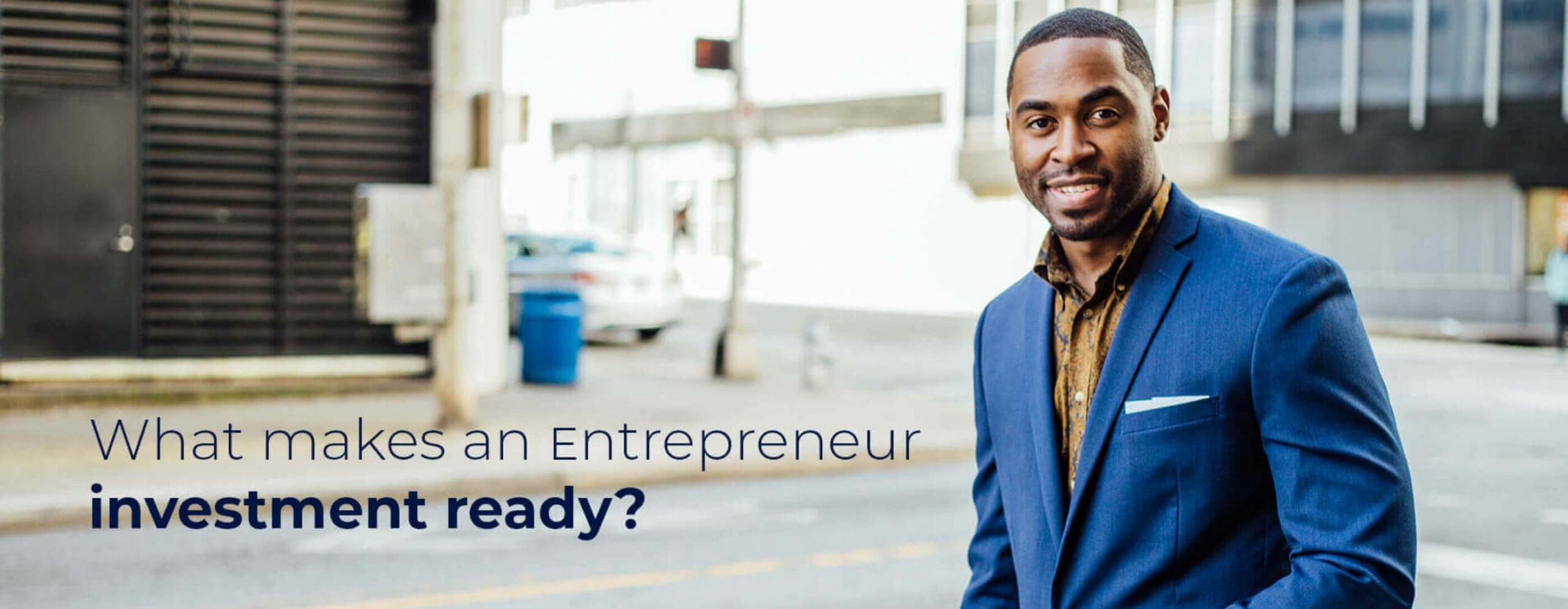Overview
The ability to manage complicated tasks and still stay focused, deep industry experience, a strong work ethic and the ability to take advice from others — these are some of the key characteristics that funders like Edge Growth look for in entrepreneurs before investing.
Edge Growth invests in high growth small enterprises, and they are mostly capitalised using corporate companies’ enterprise and supplier development spend under the BEE codes.
Edge Growth currently manages three funds with a total of R1,4bn under management, and with mandates spanning across several industries. These are the Vumela Fund, the ASISA ESD Fund and their own Edge Action ESD Fund. In total to date we have deployed almost R750 million across all our funds to many deserving SMEs.
“Edge Growth looks for entrepreneurs who have the ability to manage complicated tasks and still stay focused, have deep industry experience and have a strong work ethic.”
Vumela’s first fund which closed in 2010, raised R102-million from First Rand and made eight deals, including one with the hugely successful messaging platform Everlytic.
Vumela’s second and third funds have invested in many great businesses, including SweepSouth, a fast growing platform that provides on-demand domestic workers, job matching platform Giraffe and Selpal , which has developed an integrated system that connects informal retailers such as spaza shops with suppliers, wholesalers and brands. More recently they also invested in SeaMonster, award winning gamification and media company, and Letsema Consulting, a solid management consulting firm. Find out more about all the Vumela investees here.
The ASISA ESD fund has deployed R585 million across 791 small businesses, both in funding and providing business acceleration. The deals include those made in health-tech start-ups Recomed, Iyeza Health and EM Guidance, debt counsellors Meerkat, and private equity firm Bopa Moruo, A full list of the ASISA investees are available here.
The Edge Action ESD Fund was established in 2011 and is Edge Growth’s in-house enterprise and supplier development fund, providing effective ESD solutions, maximizing socio-economic impact through responsible investment and ensuring B-BBEE code compliance. They have invested almost R100 million in life changing businesses such as e-learning company Syafunda, telecommunications infrastructure provider Eagle Towers and petrochemical supplier DSES Project Solutions.
What makes an entrepreneur investable, why is it important for a business to be able to scale and why is it so difficult for start-ups in South Africa to raise funding from venture capital (VC) firms?
What makes an entrepreneur investable?
In our experience, some of the main characteristics of a high quality early-stage entrepreneur, in addition to them having identified a large problem in a growing market that their company is solving in an efficient, innovative and defendable way, include:
- The ability to manage complexity and stay focused.
- Deep experience in the industry or technical abilities.
- Being strategic on proving the business model and commercialising market adoption.
- Having an adaptive and passionate personality which combines a strong work ethic with the ability to take advice and learn.
In general, our experience has shown that the key element for success as a startup is a committed and complimentary team of two to three people which includes a visionary, a technical expert, and a very strong salesperson. The alignment of interest and purpose within the team is critical.
What makes a start-up investable?
Investable start-ups have identified a large problem that their company is solving in an efficient, innovative, and defendable way. This implies that there is a large and growing market for the product or service with a differentiated value proposition and that the business model is scalable in a cost-efficient manner.
The company needs to have a committed and complimentary founding team with a well-defined execution strategy.
At the stage of asking for third-party investment, it should have demonstrable customer adoption and some revenue traction.
As an investor, it is very important to understand the exit opportunities for the business and its potential to deliver on the financial forecasts.
How important is scalability, does a startup have to be a scalable business?
Scalability is important for an early stage investor given the risk profile of the asset class as the statistics indicate that about 70% of companies that received VC funding still fail.
The growth prospects and potential financial return of the business need to be significant to justify such high-risk investment based on the numerous uncertain factors that can affect the business.
How do you define scalability?
Scalability is the inherent ability of a company, in terms of its business model or cost base, to sustain or improve its performance in terms of profitability or efficiency when sales volume increases.
A company with a flexible and scalable system is the one which can manage fluctuations in volume and improving adoption and efficiency levels by leveraging existing networks to acquire customers faster at a lower cost than others.
Technology-based platforms or models usually have strong scalable features as they can accommodate large increases in volume without significantly adding to the cost base.
Scalability is also influenced by how applicable the product or service is to different markets including the potential to expand geographically.
What do investors typically look for when investing in a startup?
Few third-party South African investors invest in pure start-ups and the expectation is that the founding team will have funded the initial stages of setting up the company and getting some form of product or market fit.
Thereafter investors are looking for businesses that have identified a large problem in a growing market that their company is solving in an efficient, innovative, and defendable way by a committed and complimentary team. The financial projections need to be well substantiated with credible assumptions based on traction to date in conjunction with a clearly defined execution strategy.
When investing, what are some red flags?
Big red flags include:
- Lack of market adoption over a period of time.
- Lack of focus on core offering.
- Any questions around integrity of the team.
- Overly dogmatic founders that lack the ability to adapt to a changing environment.
At Edge Growth, how long does it take to close a deal?
The average deal takes between four to six months to close although often it works best to develop a relationship with investors before approaching them for funding.
In some cases, we became interested in very early stage businesses 12 to 18 months prior to funding which helped build trust in the team as we saw them deliver on their strategic milestones.
What percentage of start-ups get angel investing? And VC funding?
There are limited accurate figures but in general, one in 100 start-ups get early-stage funding according to various reports, although depending on the definition of start-ups this may be even more difficult in emerging markets (one in 200).
Why is it so hard for start-ups to raise VC in South Africa? Is it a problem with start-ups, or investors?
The reasons why it is hard for start-ups to get funding in SA is multi-faceted in terms of ecosystem dynamics, start-ups’ expectations and investors’ risk appetite. Some of the factors include:
-
Ecosystem dynamics
The SA VC market is still relatively nascent and while the number of funding participants is growing, there is still not an extensive pipeline of funding options at different business stages (ie angels to VC to growth funding to PE) which puts pressure on valuations and liquidity.The SA market for certain VC products and services is relatively small compared to other global market which impacts local growth prospects and adds to risk profile if geographical expansion is required.
The market has had several publicised successful exits and global investments in the past few years ( GetSmarter , Flightscope , Yoco ), however the exit landscape is still relatively under-developed which adds to the risk profile of the early stage asset class.
-
Start-ups – expectations
Early-stage entrepreneurs often have unrealistic expectations of valuations of the business given the actual traction to date and underestimate the importance of demonstrating commercialisation as quickly as possible and focusing on large market solutions.Entrepreneurs also tend to underestimate the time it takes to raise capital which can put the business under pressure when cash is running out.
-
Investors – structures
Some VC investments structures in SA can be overly complex which can lead to entrepreneur confusion and lack of understanding.
VC investors need to continually upskill their technical ability in analysing new business models, products and services to ensure they are not missing credible investment opportunities.
What is the state of investment into the startup sector in SA?
There has been a lot of positive momentum in the startup sector with the (SA Revenue Services’s) Section 12J legislation and corporate enterprise supplier development funds being a catalyst for significant capital inflows into the asset class.
The most recent SAVCA survey (opens as a PDF) — published in 2020 — indicated that the Southern African VC sector invested a total of R1.23-billion in start-ups and early-stage companies, exceeding the R1-billion mark for the second time.
It will take a while for the increased deployed funds to deliver tangible returns in terms of exits, but the industry is well positioned to deliver financial return for investors and broader economic impact in terms of enhancing employment opportunities, in particular.



